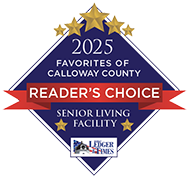Key Takeaways
- Independent living, personal care, and memory care each offer different levels of support and independence.
- Community location impacts access to family, healthcare, and local services.
- Tours help evaluate culture, cleanliness, and activity options within each community.
- Dining, wellness programs, and social engagement play a key role in daily quality of life.
- Ask for clear pricing breakdowns and understand how care needs are handled over time.
- Choosing the right retirement community involves matching lifestyle needs with care and support.
Choosing a Retirement Community
Choosing a retirement community is one of the most important decisions a family makes. You’ll want to find a place that truly prioritizes your loved one’s daily comfort, long-term care, and peace of mind. With so many lifestyle options and care levels available, uncertainty and confusion are common. So, how do you choose a retirement community for a loved one?
The best way to choose a retirement community is to match your lifestyle needs with the right care services, environment, and location. The right community doesn’t just focus on your loved one’s present needs, either. They should offer varying levels of care that prioritize your loved one’s future quality of life, too.
Check Out Your Senior Living Options
Before scheduling tours, it’s helpful to understand what types of senior living are available. Each one serves different needs, preferences, and levels of independence.
Independent Living Communities
Independent living is designed for active older adults who want the freedom to enjoy life without the burdens of home maintenance or isolation. These communities typically offer:
- Private apartments or cottages
- Housekeeping and laundry services
- Meal plans and restaurant-style dining
- Scheduled transportation
- Robust social calendars and activities
Residents maintain their independence, but gain access to conveniences that make life easier. This option is ideal if your loved one is ready to downsize or wants a more vibrant lifestyle.
Personal Care Communities
Personal care offers support for daily tasks to help residents stay independent. Life in assisted living is about meeting every person’s unique needs while respecting their autonomy and dignity. To do so, communities offer:
- Help with bathing, dressing, and medication
- Personalized care plans
- Chef-prepared meals and snacks
- Housekeeping and linen service
- 24/7 on-site care and monitoring
This lifestyle is a great fit for older adults who want to stay social and independent but could use a little extra support day to day.
Memory Care Communities
Sometimes, cognitive decline comes with age. Whether it’s due to dementia, Alzheimer’s disease, or any other cognitive condition, it often leads to the need for professional support. This is where memory care stands out for older adults. These communities offer:
- Secure environments with simplified layouts
- Staff trained in dementia care
- Structured daily routines
- Activities that support cognitive engagement
- Visual and tactile cues for ease of navigation
Memory care becomes important when safety, structure, and round-the-clock support are needed for a loved one with memory loss.
Location and Community Access Factors
Where a senior living community is located matters more than most people realize. It can affect your loved one’s social life, access to care, and connection to family.
Start by asking yourself:
- Will family and friends be able to visit easily?
- Is the community close to familiar neighborhoods, shops, or places of worship?
- Does it offer transportation to local services or events?
Also consider proximity to hospitals, clinics, or specialists. Some communities provide on-site wellness clinics or partner with local providers to simplify appointments and emergency care.

Culture, Lifestyle and Community Feel
Not all communities feel the same. Some emphasize wellness and lifelong learning, while others prioritize social events and daily activity. What matters most is finding a place that feels like home. This is why in-person tours are so important, because they give you a chance to see what your loved one’s new home could be like.
During your tour, watch for:
- Resident engagement and social energy
- Staff friendliness and respectful interaction
- Clean, welcoming common areas and dining spaces
Ask to see an activity calendar and see if the programs match your loved one’s interests. Look for options like:
- Fitness and yoga classes
- Art or music therapy
- Book clubs or educational workshops
- Volunteer or community outreach opportunities
A community’s culture can influence how supported and engaged your loved one feels on a daily basis. So, take the time to go in person and see the space for yourself.
Financial Planning and Community Costs
Knowing what’s included in the price of a senior living community helps you avoid surprises later. So, ask potential communities for a full breakdown of costs, and compare pricing models. They’ll be able to break down how their fee structures work to help you plan ahead.
It helps to ask:
- What happens if care needs increase?
- Will you have to move for higher levels of care?
- Are healthcare services on-site or outsourced?
- What is the history of fee increases?
Weigh these costs against the price of staying at home with outside help. Often, assisted living, independent living, or memory care communities offer better value, security, and connection.
Find Your Future Home Today
No two senior living communities are the same, and no decision should feel rushed. Trust your instincts, ask questions, and think long-term. The right community should support your loved one’s needs and lifestyle for years to come.
At Hickory Woods Senior Living, we provide a range of lifestyle options tailored to the needs of every resident. Whether you’re considering assisted living, memory care, or independent living, we’re here to help you find the perfect fit. Book a tour with us today to learn how our community can support your family’s next chapter.


